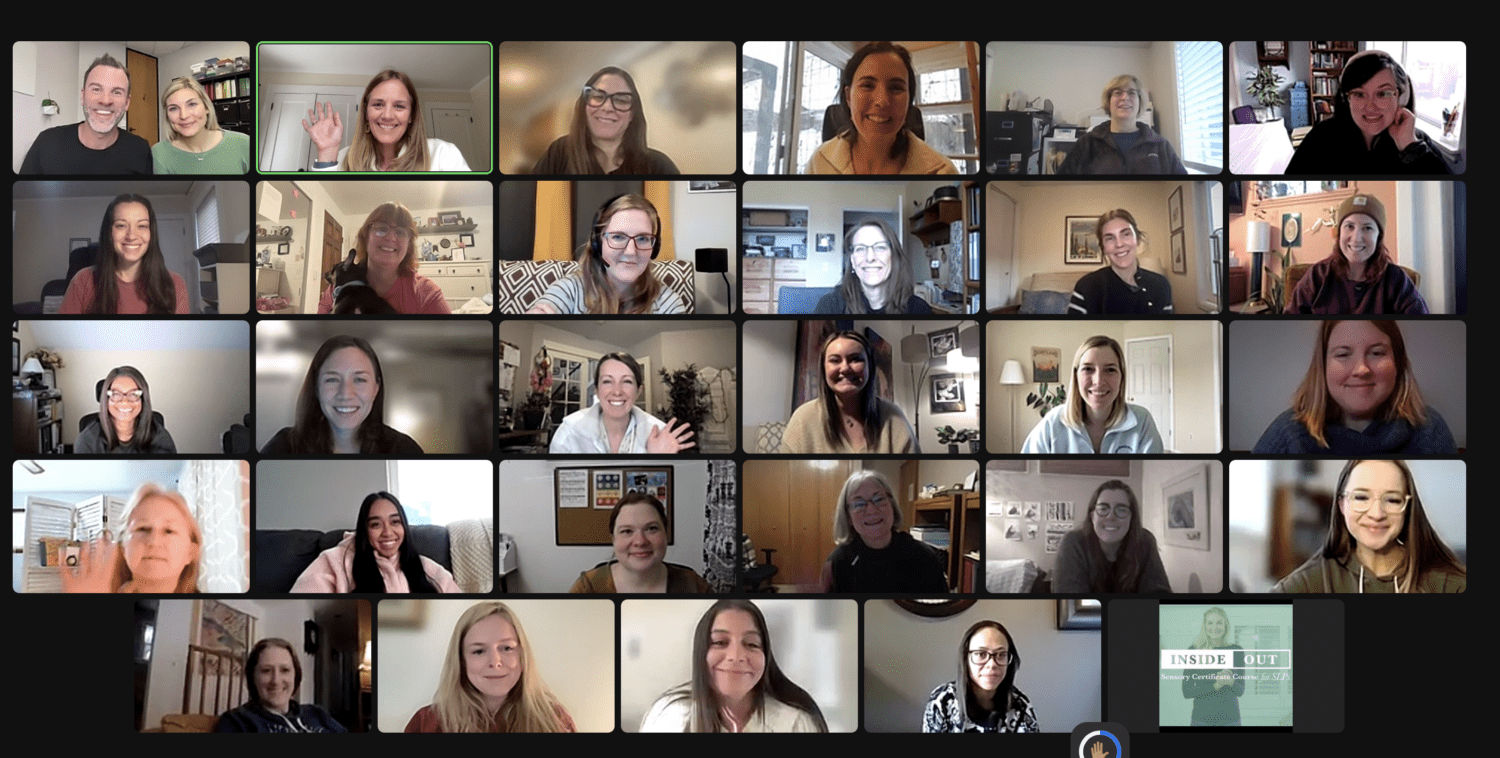Chris Wenger (Speech Dude) is a neurodivergent high school SLP and internationally- acclaimed presenter who’s on a mission to improve the way we assess our autistic students. Jessie Ginsburg is a Sensory Integration trained SLP (the Sensory SLP) who teaches regulation techniques to improve communication and language skills.
Chris and Jessie were engaging and enthusiastic about their topic – they spoke about sensory and emotional regulation, conducting IEPs and goal writing that reflects topics related to the Neurodiversity Paradigm and utilizing the Neurodiversity Paradigm in our everyday practice.
Here are our takeaways from the day:
Create a Neurodivergent-Affirming Practice
It’s important to use neurodivergent-affirming language and create neurodiversity affirming environments for autistic students. We can support stress-response behaviors, provide sensory accommodations, and use neurodivergent-affirming language in our goal writing and assessments. Chris encouraged us to write present levels and goals/objectives from a strengths-based approach, and gave suggestions on how to help students with self-advocacy. We received lots of helpful handouts to share with parents and school members as well.
Supporting student “behaviors” in the classroom
Extinguishing behaviors is not helpful – instead, finding the neurological underpinnings for things we may see as “behaviors” is more important. Often the behaviors we see are the tip of the iceberg, and we need to look deeper to determine what is causing them. For example, biting may be a sign of emotional distress/dysregulation rather than sensory dysregulation. We also learned a new term, Pathological Demand Avoidance, and how to support students who demonstrate this pattern of behavior. Some students can’t determine how big a problem is when they are likely dealing with sensory issues, which make problems seem even bigger in that moment.
Also, we learned that Thomas and Friends has an autistic character that is played by an autistic child! It’s so great to see a broader acceptance of the neurodivergent community in our media, culture, and schools. We are thankful to have a day with Chris and Jessie as we all work to serve these students in our everyday practice.






